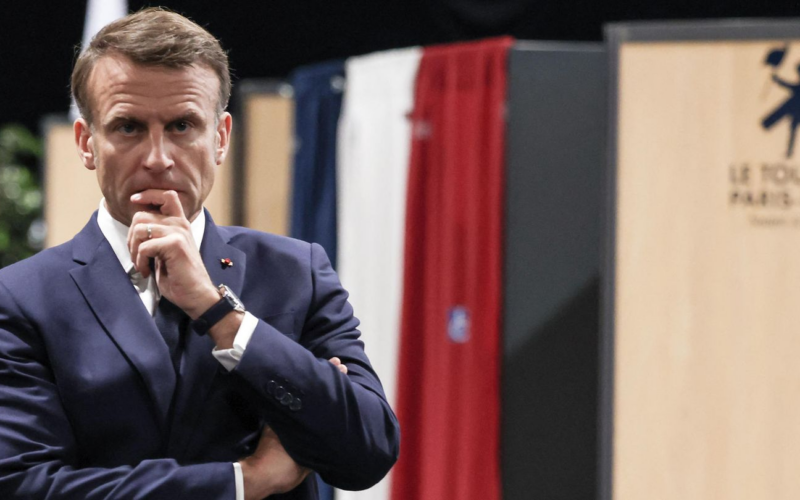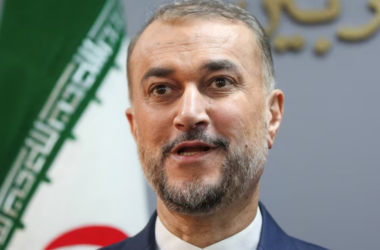French President Emmanuel Macron stated on Wednesday that he will not step down even if his party performs poorly in the upcoming snap parliamentary elections, dismissing the idea as “absurd.”
In response to speculation regarding his future if his party suffers losses in the forthcoming elections, French President Emmanuel Macron declared that he has no intention of resigning. Macron made these remarks on Wednesday, categorically refuting the notion that he might step down as “absurd” and clarifying that the idea of him resigning “never existed.”
“I want to nip this in the bud,” Macron told journalists, as translated by CNBC from French sources.
The snap elections for France’s parliament, set for later in June, were called by Macron on Sunday after his Renaissance party faced significant setbacks in the European Parliament elections. The elections saw substantial gains for right-wing parties across several countries, including France, Germany, and Austria, which has heightened the stakes for Macron’s party.
Despite the critical juncture, Macron indicated that he would not take an active role in the campaign. “I do not intend to campaign more than I did in 2017 and 2022,” he said, placing the responsibility for campaigning on French Prime Minister Gabriel Attal and the leaders of the majority coalition.
Macron has framed the snap election as a crucial choice between nationalism and liberal values, underscoring the significance of a united European Union for France’s future. This rhetoric comes amid rising voter disenchantment with the EU, driven by issues like immigration, cost of living, and crime, as evidenced by the recent European Parliament election results.
“For me, who has always considered that a united, strong, and independent Europe is good for France, it’s a situation that I cannot come to terms with,” Macron expressed on Sunday.
The right-wing National Rally (NR) party, led by Marine Le Pen, won 31.37% of the French vote in the European Parliament elections, a considerable lead over Macron’s Renaissance party, which garnered 14.6%. Should the NR secure a victory in the snap elections, Macron would remain president but would face the challenge of appointing a prime minister from the NR, thereby diminishing his influence over domestic policy.
Analysts suggest that Macron’s call for snap elections is a tactical move, banking on either a divergence between national voting behavior and the European Parliament results or a mobilization of centrist voters against the far-right. The potential for a far-right victory is expected to galvanize voters who wish to prevent the NR from gaining further political power.
Critics, including some within Macron’s party, have labeled his decision as reckless and ego-driven. Despite the controversy, Macron emphasized in his national address that he has “heard” the electorate’s concerns and is committed to addressing them.
“France needs a clear majority to act in serenity and harmony,” he stated, outlining the rationale behind dissolving parliament.
The first round of voting in the snap parliamentary elections is scheduled for June 30, with a subsequent round on July 7. The outcome of these elections could significantly impact the political landscape in France, potentially reshaping the balance of power between Macron’s administration and the opposition.








